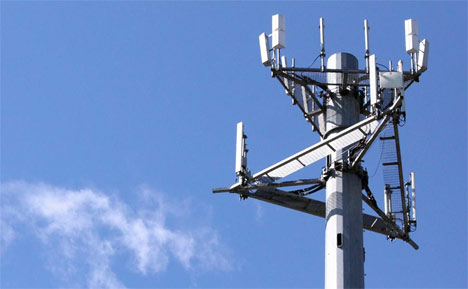Communications During A Terrorist Attack
During a terrorist attack, there is a U.S. Government plan that will adversely affect your ability to communicate with your family/friends/co-workers. You will be completely cut-off.
You need to know this…
The U.S. Government has in force a plan that, in the event of another terrorist attack, will immediately cut-off EVERYONE’s ability to use cell phones, as this is the preferred communication source used by terrorists and is often the way that their bombs are detonated.
Does your family know what to do if you can’t contact one another by phone?
How will you communicate with your loved ones in the event you cannot use phones?
Bottom line, you need to have a plan!
After two bombs exploded at the finish line of the Boston Marathon on April 15, many Boston residents were unable to send or receive cellphone calls. Some believed cell networks were shut down to prevent the detonation of remote-control devices. There are also reports that the apparent suspended cell service in Boston was due to overloaded carriers. Regardless of whether or not the government shut down phone service in Boston, they do have a plan in place to do just that.
While cell towers are privately owned, they are licensed by the federal government, which has the authority to silence them in an emergency. The National Communications System, a subdivision of the Department of Homeland Security, has established a protocol for emergency interruptions.
The process can begin when a state authority, such as a governor, makes a shutdown request to state homeland security advisers. These advisers, employees of an agency called the National Coordinating Center, evaluate the request; if it seems valid, they contact the cellphone carriers, which must temporarily dismantle the networks by shutting off their base stations.
On a smaller scale, local law enforcement agencies—including city bluecoats and transit authorities have access to devices that can jam signals over specific areas and block target phones. They do not need consent from telecom companies to use them.
– slate.com
In 2006, the National Security Telecommunications Advisory Committee documented a set of rules for how emergency interruptions can be initiated, resulting in a Standard Operating Procedure (SOP) 303, also called “Emergency Wireless Protocols.”
According to SOP 303, which has not been published but has been described in government documents, shutdowns are organized through an agency called the National Coordinating Center.
Cellphone carriers are onboard with SOP 303. According to their trade organization, the CTIA: “The development and implementation of SOP 303 involved substantial government and industry stakeholder participation, with the wireless industry supporting the procedures adopted.”
– buzzfeed.com
The plan is in place. They will use it. Are your ready?
Imagine the implications of a broad terrorist attack across the nation. The entire nationwide systems of wireless cell towers could potentially be shut down, leaving EVERYONE without cell communication. Should this happen nationwide, or regionally, you may be left in the dark, not being able to coordinate with your family/friends/other.
The solution? Have a plan, and don’t be surprised when it happens. Arrange ahead of time where you would meet. Have more than one place in mind (in case location #1 is within the attack zone). Since some people still do have ‘land lines’, you could arrange to call a certain someone who would be the coordinator and would relay messages. The caveat being that you would need to place your outgoing call on a land line, which may be difficult out on the street (when is the last time you saw a pay phone anywhere?)
If you have children who may be in school or daycare, be sure that they or their teacher/provider knows what to do (who to call on a land line versus cell phone), or who is authorized to pick up your children if you are not there.
Today’s modern world of cell phone communications also comes with its systemic risks, one of which is your government shutting them down in an emergency…
Have a plan.

